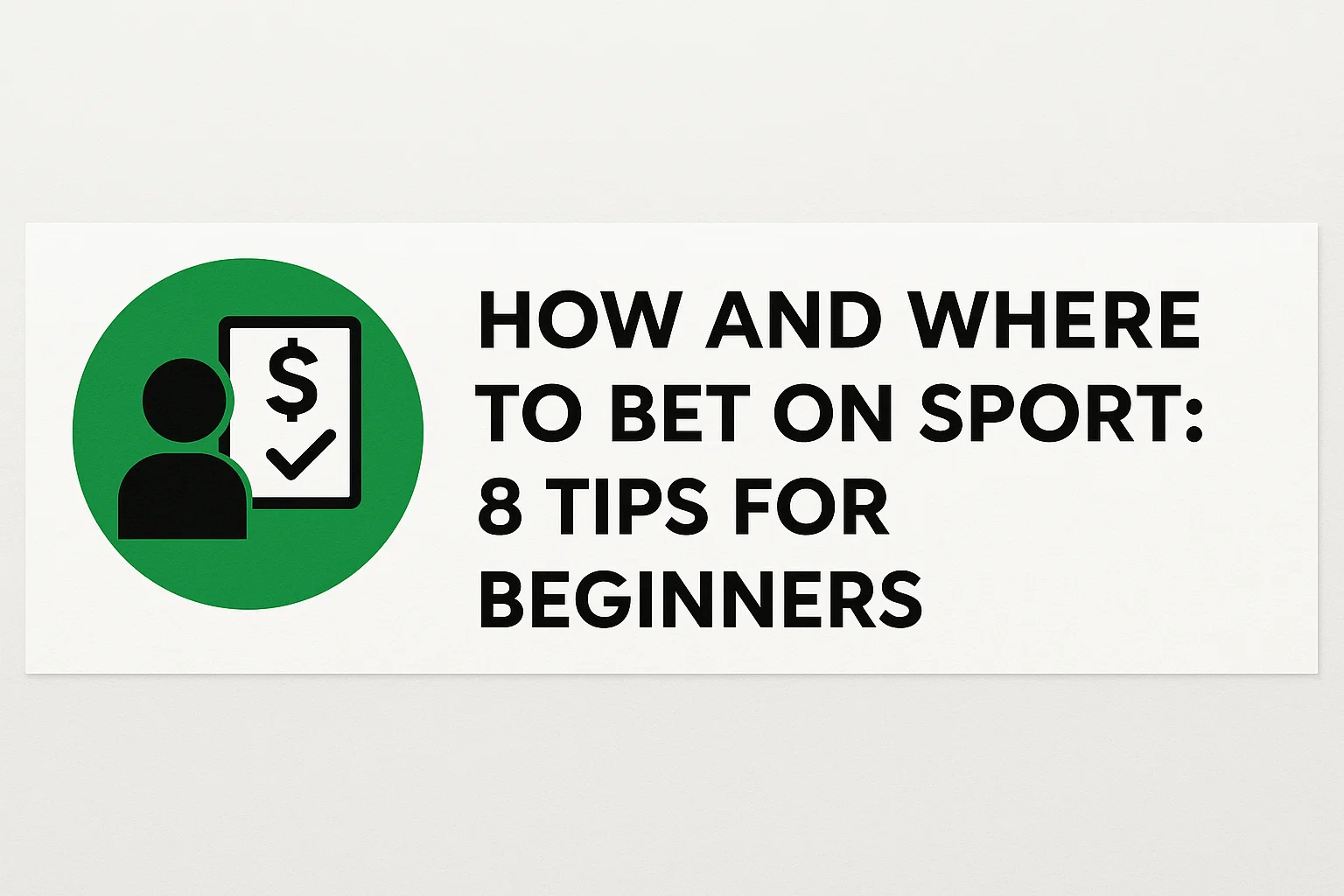
It is easy to make a bet on sport – register in a sportsbook, deposit funds, choose an event, and enter your bet. Making a profit is not as easy – you need to choose a reliable bookmaker, familiarize yourself with rules of sports betting, and make the correct predictions taking statistics into account. Let's find out how newbies can begin and win more often.
1. Choose a Sportsbook
Selecting the proper sportsbook is the most critical step, as it influences your profits and overall experience. There are numerous sports betting sites on the Internet, but few of them have the correct combination of trust, usability, and market coverage. Here's how to select the proper website to make your sports bets.
- License in New Jersey. Avoid unlicensed sportsbooks – they don't pay out and can suddenly shut down, keeping your funds. In New Jersey, its licensed sportsbooks are regulated by the New Jersey Division of Gaming Enforcement (DGE) to provide a fair business and safeguard for players. Bet only with a legal sportsbook approved by the DGE.
- Sporting bet options for your favorite sport. The top sports of football and hockey are well-covered by top sportsbooks such as FanDuel, DraftKings, BetMGM, and Caesars. Special sports coverage differs with the bookie. For example, some books trade extensively in eSports, while others trade more in basketball or MMA.
- Usability of the site. Browse through some pages of the site, try to find a match, and notice how it works. If you plan on betting from your cellular phone, check if the sportsbook has a good mobile app.
- Reviews. Even legitimate bookmakers can freeze payments, lower maximum bets, or freeze accounts. These are within their terms and conditions, so they are not illegal. To avoid bad experiences, look at user reviews to see repeated complaints and determine if they are legitimate or not.
- Welcome bonuses. Most sportsbooks offer new user bonuses, such as deposit matches or free bets. These usually have conditions on the wagering requirements. Don't be so fixated on the size of the bonus – determine how much you must wager so you can get it. For example, a $10 bonus may require $500 in wagers.
2. Understand What a Bet Is
A bet is an agreement between an individual and a sportsbook concerning the outcome of an event. The individual makes a forecast and stakes money. In case he accurately forecasts, the sportsbook rewards with a win; otherwise, the wager is lost.
The payout is odds-based. Multiply your stake by the odds for your potential return. Odds are a way of measuring how likely the result is – the less likely, the greater the odds.
There are different kinds of bets:
- Single bet (moneyline) – one event. You will win if your prediction is correct.
- Parlay (accumulator) – more than one event. All of them have to be correct to win. All the odds multiplied.
- System – a combination of multiple bets. Not all selections need to be correct to win, and payouts depend on how many are correct.
3. Learn the Terms
You won’t have time to Google terms while placing bets. Here are some common ones:
- Line – list of upcoming events.
- Live/In-play – events currently happening.
- 1X2 (Match Result) – bet on home win (1), draw (X), or away win (2).
- Double Chance – bet two out of three possible outcomes.
- Total (Over/Under) – bet the number of goals, points, rounds, etc.
- Spread/Handicap – bet one team's score benefit or loss.
4. Understand How Bets Are Settled
Each bookmaker sets payout based on its conditions. You can usually find them at the bottom of the site or account area. Carefully read them or check search/support if in doubt.
There are norms that apply in the form of rules. An example is result of match, spread, and total bets, which usually settle at the end of regular time. If a game goes into overtime and you bet on a team to win regular time, the bet will lose.
5. Obeys Stats and News
Right information and up-to-date figures are best for winning bets. Prior to proceeding and placing a bet, study the form of a team, injuries, winning or losing streaks, and player availability.
Don't bet a few days in advance – lots of things can go wrong, such as injuries, the changing of coaches, or team conflicts. The closer to the match time, the more accurate your prediction.
6. Practice First
Don't be in a hurry to put money. Use mock bets instead. Select a few matches, assume fake stakes, and note the odds. At the end of the match, determine the outcome as if it were real – stake times odds if won, or write down loss.
It does not matter where you record your bets – in paper, Excel, or a text file. What matters is analyzing how well your predictions are. This enables you to train using real data and is inexpensive to do while learning.
To move further, keep an eye on the profitability of your betting record.
7. Bankroll Management
Your bankroll is money you have placed in your sportsbook account. Don't bet your entire balance on a single wager – even the best gambles can bust.
Good gamblers use bankroll management strategies. One of the most simple and good one is flat betting strategy: bet the same percentage of your bankroll each time. Newly joined players should use 1–2%. Don't place more than 15% of your bankroll on a single bet.
8. Don't Believe in Fixed Matches
Any information about fixed matches on public forums or websites is a scam. Fixing does occur – but extremely rarely and illegally, risking enormous penalties in the form of fines or lifetime suspensions for players.
If you're being sold "inside" information on a fixed match for a few dollars, don't buy it – it's a scam.

